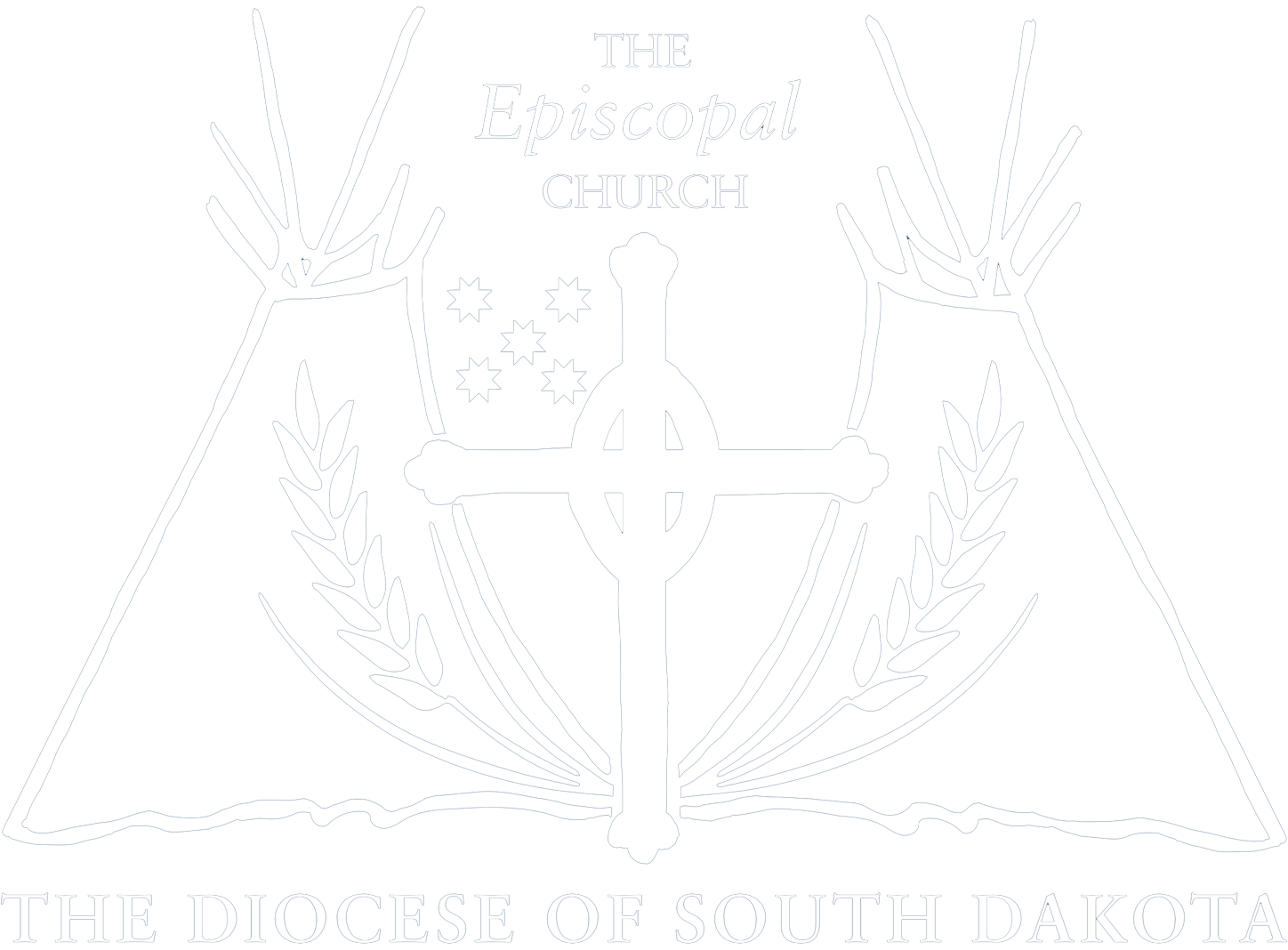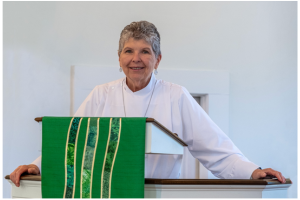[Episcopal News Service] In 2024, Freida Herron, a lay leader at St. Andrew’s Episcopal Church in Maryville, Diocese of East Tennessee, became the first lay person to preach at the closing Eucharist of the annual Episcopal Parish Network conference.
For many Episcopalians, hearing from voices from different backgrounds, ordained and lay, enhances their spiritual growth.
The growing interest in hearing from lay leadership inspired the Episcopal Preaching Foundation to establish a special training program to prepare them for the pulpit.
“The lay preaching program has enriched my life and helped me answer my call to do the work of the Holy Spirit and do the same for other lay people,” Herron told Episcopal News Service.
Herron graduated from the lay preacher program in 2023 and is one of 31 instructors from 12 dioceses who’ve taught over 100 students since the program was launched in 2022. The initial five-student pilot cohort was funded by a grant from New York’s Trinity Church Wall Street. This month, 30 students from 12 dioceses will graduate from the program.
The mostly virtual program is churchwide, with students grouped by dioceses; once they graduate, their bishops license them.
Over the 11-month program, students read articles and books, watch videos, write personal reflections and meet with fellow students in their diocese via Zoom or in person to practice homiletics, aka preaching. Topics range from biblical hermeneutics and exegesis to preaching for different contexts and occasions.
“Some weeks it is talking through what they’ve read and learned, and some weeks it is preaching mini sermons, and some weeks it’s preaching full sermons,” the Rev. Jo Nygard Owens, the preaching foundation’s national program director, told ENS. “There are a lot of different ways that they engage, but as they move through the curriculum, more time is spent preaching and providing feedback in small group sessions.”
For Karen Olson, canon for ministry in the Episcopal Church in Minnesota and a program trainer, hearing perspectives from lay and clergy orders is both “important” and “compelling.”
“Lay preaching, I think, is relatable,” she told ENS.
The Episcopal Preaching Foundation is accepting applications from adults in the dioceses of El Camino Real, Northern California and San Diego for the 2026 English-language cohort through December. The course will begin in February.
The foundation is also working on a Spanish-language curriculum and hopes to begin recruiting a Spanish-speaking cohort in January. Peter Wild, the foundation’s executive director, told ENS that the Spanish curriculum will be developed specifically for Latino ministries, not simply a translation of the English-language curriculum.
The growing demand for lay preacher training comes amid an increasing churchwide clergy shortage, though, according to Wild, students enroll for their own reasons. This is especially evident in how they preach because the Scripture they’re interpreting “has a slightly different implication for them” than clergy, he said.
“This is why, for the people in the pews, it can be a beneficial thing to include a lay preacher and their perspective, when possible, clergy shortage or not,” Wild told ENS.
For Jason Franklin, communications director of St. Paul’s Episcopal Church in Winston-Salem, North Carolina, joining the 2022 pilot lay preaching program was a way to help Episcopalians understand that the church’s lay and clerical orders are equal.
“People ask me all the time why I didn’t just go to seminary and get ordained – and that’s a fair question, and I was previously in discernment – but I really feel called to the order of lay ministry and reaching out to people from that perspective,” Franklin, who occasionally preaches at St. Paul’s, told ENS. “Having that kind of diversity of voices is, I think, the future of the church. …There’s a real hunger from the people sitting in the pews every week to hear from the pulpit someone who’s just like them.”
The Episcopal Preaching Foundation is in the early stages of creating the National Association of Lay Preachers. Once it launches in January, Franklin will serve as executive director. A national database of lay preachers will also be established for dioceses.
While the new association is in development, the foundation is offering other avenues for alumni, instructors and anyone interested in learning more about lay preaching to network and share their experiences. Last month, 60 people from The Episcopal Church and the Anglican Church of Canada, including alumni and people in discernment, gathered virtually for the first annual lay preacher conference.
“I think the preaching program really teaches us a lot about how we connect our professional lives with our spiritual lives as lay people,” Franklin said. “It’s a really exciting opportunity to develop further our own personal beliefs and help this wonderful program grow.”
-Shireen Korkzan is a reporter and assistant editor for Episcopal News Service. She can be reached at skorkzan@episcopalchurch.org.

